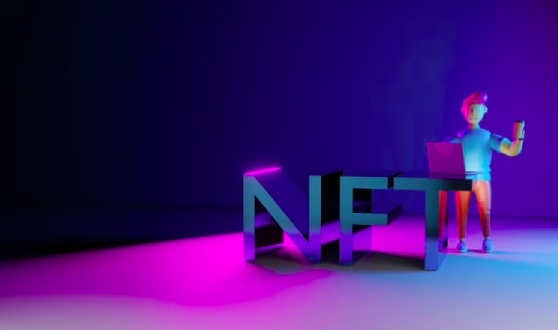-
The development of a new Ethereum token standard called ERC-4907 is completed. It introduces a new NFT standard that enables users to lend out their Non-Fungible Tokens (NFTs) for a specific time at a prefixed cost.
Purchasing and collecting NFTs is undoubtedly an expensive endeavor. Even the most affordable NFTs from well-known initiatives like Bored Apes and Cryptopunks are not available for purchase at a price that is affordable for a typical individual. NFT rental comes into play in this scenario.
It is exactly what it entails: renting out NFTs to offer users to possess an NFT and utilize its benefits.
Curious about the NFT rental process? Let's explore.
The Rental NFT Standard, EIP-4907
A new standard named ERC4907 is discussed in Ethereum Improvement Proposal (EIP) 4907, which is an expansion of the ERC721 standard. The ERC721 standard is the one that Non-Fungible Tokens (NFTs) most frequently employed in this context.
In other words, the ERC4907 NFT standard enables you to "rent out" to another address the utilities that your NFT has unlocked. This is made possible by giving the NFT a new job.
Rentable NFTs, for instance, can be heavily utilized in projects where NFTs are utilized to handle the ownership of virtual real estate or "virtual land," as stated in the EIP itself.
Consider a Metaverse project like Voxels, where you must buy a comparable NFT to buy real estate in the virtual world.
You are the legal owner of that parcel of land if you possess the NFT.
The ERC4907 NFT standard would permit landowners to rent out their property, just like in IRL real estate. Lowering the financial barrier enables landowners to generate some passive income from their virtual assets and increases access to virtual land. A win-win scenario exists!
Also, Explore | A Quick Guide to Ethereum ERC Token Standards
What is NFT Rental?
NFT renting is the method by which individuals who do not already own or possess a certain NFT but would like to use it or experience it for a small period of time borrow the NFT from a suitable NFT renting protocol.
Defi blockchain technologies are used by NFT rental marketplaces to support safe transactions and guarantee that the NFT is returned to its owner after the rental period.
Types of NFT Rental
Renting with Collateral
Lenders can list their NFTs on an NFT marketplace that offers lending and borrowing functionalities. Renters who are interested in the NFT would then start the borrowing procedure. It would involve putting the NFT inside of a smart contract. The lender and borrower would agree upon the conditions of the smart contract. The rental procedure starts after the terms have been decided upon and agreed upon.
The renter must deposit collateral with a larger value than the NFT to safeguard the lender's interests. Additionally, there is a rental fee that must be paid by the renter. After the contract's term is up, the NFT is given back to its original owner, and the borrower gets their collateral back.
No-collateral Rentals
The process for renting without collateral is the same as for renting with collateral. The sole distinction is that, in contrast to collateral renting, the renter never receives the original NFT in this situation. Instead, a wrapped NFT is created for the renter that has all the same features as the original asset and is also backed by the original asset. The wrapped NFT is incinerated once the contract ends. Both the renter and the owner are exempt from this requirement in this case. This lowers the financial risk for both parties.
Use Cases
Rental NFT in The Metaverse
Plots within virtual worlds are referred to as LAND, such as those offered by protocols like The Sandbox or Decentraland. An NFT representing a property, which normally may be acquired in a virtual marketplace like OpenSea, stands in for LAND.
It is possible to develop the LAND itself, either directly by the owner or through builders. With merely this paradigm, the LAND's value is up for market speculation and provides no particular utility. When taking into consideration rentable NFTs, this is not the case. It provides the LAND owner with two significant potential revenue streams:
- Taking up a landlord role and leasing LAND
- Using the potential for advertising to monetize the LAND
Rental NFTs can continue to advance the metaverse economy thanks to these strengthened use cases. Brands have the opportunity to merely rent NFT for various initiatives, events, or other digital activities thanks to the ERC-4907 standard.
NFT Renting in Blockchain Gaming
Despite first seeming to be very inclusive, there are frequently high entry barriers for individuals using GameFi and P2E games for money. Games built on blockchain often emphasize the value of cryptocurrencies and NFTs.
Many games have NFT representations for the items and upgrades that provide the player with advantages. These advantages might assist the player to succeed in minigames or win battles, increasing their revenue. These NFTs can be challenging to obtain due to the extra value.
Blockchain gaming accelerators address this issue by allowing users to rent NFTs. This considerably improves the players' capacity to perform effectively and generate more P2E revenue. The ERC-4907 token standard has made it considerably simpler to put this idea into practice.
Building a Rentable NFT Project with Oodles
From developing a landing page with rent enablements to implementing NFT smart contracts with the proper rent features, creating a Rentable NFT project can be a challenging task. NFT developers at Oodles can help you develop a one-stop, fully customizable solution that enables you to establish a rentable NFT marketplace with a seamless and engaging experience.

Our Offices
INDIA
Emaar Digital Greens, Sector 61,
Gurugram, Haryana
122011.
Welldone Tech Park,
Sector 48, Sohna road,
Gurugram, Haryana
122018.















